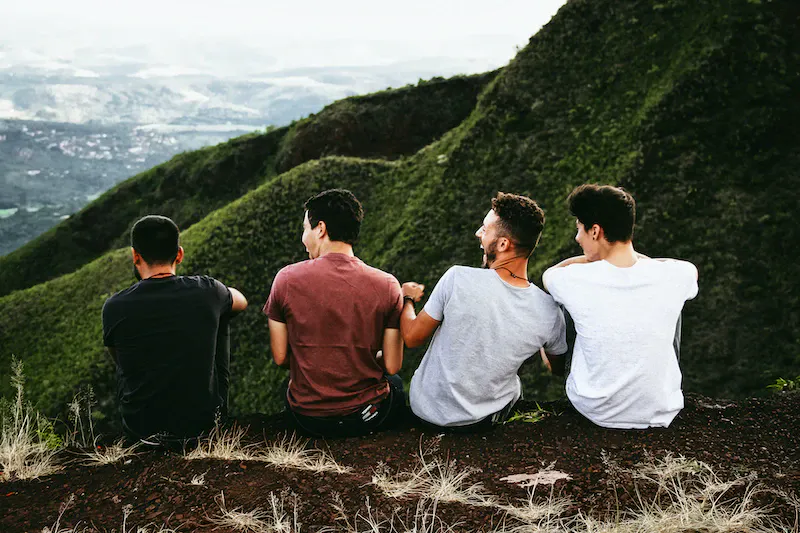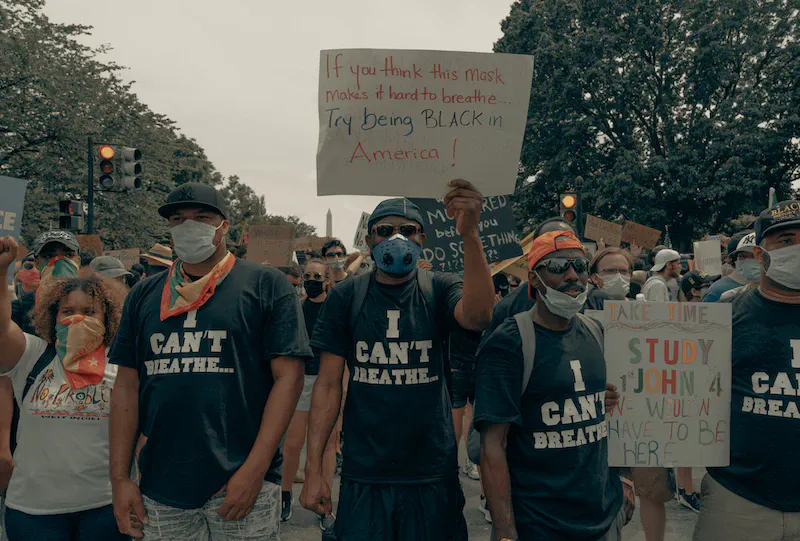Breaking the Silence: Lessons Learned from a Successful Social Change Campaign

How I Founded and Ran the National Media and Political Campaign to Make Upskirting Illegal
It all started with a conversation with a friend of mine who told me about an incident of upskirting that had happened to her. For those who don’t know, upskirting is the act of taking a photograph up someone’s skirt without their consent.
I was shocked to learn that this was not already a criminal offense in the UK, and I decided to do something about it. I began researching and found that the law had a loophole that made it difficult to prosecute those who engaged in this behavior.
I decided to start a campaign to make upskirting illegal, and I knew that the first step was to raise awareness about the issue. I reached out to the media and was able to get some coverage, which helped to spread the word.
But I knew that awareness alone was not enough. I needed to push for a change in the law. I started lobbying politicians and gathering support for my cause. I met with MPs from different political parties and explained why upskirting needed to be made illegal. I also gathered signatures for a petition, which I presented to the government.
After months of hard work, I finally received some good news. The government agreed to support a private members’ bill that would make upskirting a criminal offense. The bill was passed in the House of Commons and then the House of Lords, and it received Royal Assent in February 2019.
I was thrilled that my campaign had been successful, and I was proud to have played a part in making the law fairer for women. But I know that there is still work to be done. I will continue to push for changes to the law to protect women from harassment and abuse.
Life Lessons from a Difficult Time
At some point in our lives, we all experience difficulties that challenge us both mentally and emotionally. For me, this period came unexpectedly, and it was undoubtedly one of the most challenging times of my life. However, it also taught me valuable life lessons that I would like to share with you today.
First and foremost, I learned that toughness is critical in life. Life is full of unpredictable twists and turns, and it is important to have the strength and flexibility to adapt to changes. The ability to persevere and bounce back from adversity is crucial, and it helped me to keep going during those dark days.
I also learned that it’s okay to ask for help. It’s common to feel ashamed or embarrassed to ask for help, but reaching out to friends, family, or professionals can provide a tremendous amount of support during tough times. I was surprised to learn how many people were willing to help and support me when I opened up and shared my struggles with them.
Another important lesson was that self-care is essential. During stressful times, it’s easy to neglect self-care and focus solely on the challenges at hand. However, taking time to prioritize self-care activities such as exercise, meditation, or a simple hobby can help ease stress and boost mental wellbeing.
Lastly, I learned that growth and learning can come from difficult experiences. Although it was undoubtedly a challenging time, I emerged from it stronger, more resilient, and with a greater appreciation for the good things in life.
In conclusion, difficult times are never easy, but they can provide us with valuable life lessons that we can carry with us for the rest of our lives. Remember to stay resilient, ask for help when needed, prioritize self-care, and recognize that even the toughest experiences can lead to growth and learning.
Why Women and Marginalized Genders Stay Silent About Sexual Harassment
Sexual harassment is a pervasive issue that affects many people, especially women and marginalized genders. However, many of them stay silent about their experiences because of the system working against them. This silence is often caused by fear of retaliation, disbelief, and lack of support.
The fear of retaliation is one of the primary reasons why people stay silent. This fear can come from the perpetrator or the system itself, such as the workplace or society. Victims worry that they will lose their job or be ostracized if they speak up, which can cause them to remain silent about their experiences.
The disbelief and lack of support from others also contribute to the silence around sexual harassment. Victims may feel that they will not be believed or taken seriously if they speak up, especially if the perpetrator is in a position of power. In addition, many people may not know how to support someone who has experienced sexual harassment, which can cause them to shy away from the topic altogether.
It is essential to understand why people stay silent about sexual harassment to create a safer environment for everyone. We need to address the fear of retaliation, provide support and believe victims, and work towards dismantling the systemic issues that contribute to the silence. Only then can we create a world where everyone feels safe to speak up about their experiences without fear of reprisal.
Why Anger is a Normal Response to Having Your Human Rights Compromised
It’s natural to feel angry when you’ve been wronged or when your rights have been violated. Anger is a normal human emotion and can serve as a motivating force to take action and demand change.
When it comes to having your human rights compromised, it’s particularly understandable to feel angry. Marginalized groups, including women, people of color, and members of the LGBTQ+ community, often experience discrimination and mistreatment based on their identities. This can manifest in various forms, including harassment, assault, and systemic injustices.
Feeling angry in response to these injustices is not only normal but can also be productive. Anger can drive individuals and communities to take action, demand change, and fight for their rights. It can be a powerful force for social progress and justice.
However, it’s important to channel anger in a constructive way and not let it consume you. This means taking care of yourself, seeking support, and finding healthy ways to channel your emotions. It also means recognizing that anger is not the only emotion you should feel or express. Compassion, empathy, and understanding are also vital emotions when it comes to creating a more just and equitable world for everyone.
Social Media: A Game-Changer for Social Change
Social media has become an indispensable tool for social change in recent years. It has enabled people from all walks of life to come together and have their voices heard, regardless of their social standing or political influence. Social media platforms such as Twitter, Facebook, and Instagram have enabled people to create, share and increase their messages, making it the single most important democratizing tool for social change.
From the Arab Spring to the #MeToo movement, social media has played a crucial role in mobilizing people and spreading awareness about social issues. It has helped people raise awareness about their struggles, share their experiences, and connect with like-minded individuals, making it possible for them to organize and bring about real change.
Social media has also made it easier for activists to hold those in power accountable. By shedding light on issues that may have otherwise gone unnoticed, social media has helped people to demand accountability from politicians, public officials, and corporations.
Moreover, social media has given marginalized communities a platform to share their stories and experiences, helping to raise awareness about issues that are often ignored by mainstream media. This has helped to break down barriers and bring about greater understanding and empathy between people from different backgrounds.
In conclusion, social media has transformed the way we communicate and has become an essential tool for social change. It has given a voice to the voiceless, enabled people to demand change, and has helped to hold those in power accountable. As we move forward, we must continue to leverage social media to create positive change and build a better world for all.
Taking Small Actions Can Enable You
As someone who has been involved in social change movements, I can attest to the power of taking action, no matter how small it may seem. It’s easy to feel overwhelmed by the scale of the issues we face in the world, but taking even a small step towards positive change can help metabolize feelings of powerlessness and turn them into motivation.
For many people, the idea of making a significant impact can seem unattainable, but I’ve learned that every action counts. Whether it’s signing a petition, sharing an important message on social media, or simply having a conversation with someone about an issue you care about, each action adds up to a larger movement towards change.
In addition to the tangible effects of taking action, I’ve also found that it can be enabling on a personal level. When you feel like you’re making a difference, no matter how small, it can help you feel more confident and in control of your own life.
So, if you’re feeling frustrated or powerless in the face of social injustices, I encourage you to take a small action today. You never know where it may lead or what impact it may have.
Campaigning for Upskirting to be Made Illegal: Honesty, Politics, and Law
Campaigning for a change in the law can be a daunting task, especially if you are not familiar with the political and legal systems. In my experience, honesty and finding someone who knew about politics and law were key to successfully campaigning for upskirting to be made illegal.
First and foremost, I had to be honest with myself about the situation. Upskirting is a violation of human rights and a form of sexual harassment that disproportionately affects women and marginalized genders. It is unacceptable that such an invasive act was not already illegal.
To make a change, I had to navigate the political and legal systems. This required finding someone who knew about politics and law to help guide the campaign. It was important to work with individuals who had expertise in these areas and who shared the same values and goals for the campaign.
Campaigning for upskirting to be made illegal was not an easy task, but it was necessary. By being honest with myself and finding the right people to work with, we were able to successfully campaign for change. It just goes to show that even small actions, such as being honest and finding the right people, can make a big difference in creating change.
Why Human Rights Should Be about Values and Morals
As a society, we often get caught up in the left-right political spectrum, forgetting that human rights are about values and morals. While there may be differences in policy approaches, at the core of the human rights movement is the belief that every individual deserves to be treated with dignity and respect.
When we start looking up and down, we begin to see that human rights are not just political issues; they are personal issues that affect us all. They are about how we treat our fellow human beings, regardless of their background or beliefs.
As someone who has worked to make upskirting illegal, I know firsthand the importance of focusing on values and morals rather than politics. By centering my campaign on the right to privacy and the right to bodily autonomy, I was able to create a movement that transcended party lines and brought people together in the fight for a common goal.
So, let’s start looking beyond the political labels and instead focus on the values and morals that unite us. By doing so, we can create a more just and equitable society for all.
Conclusion
In conclusion, the lessons we can learn from the experiences of those who have fought for justice and equality are valuable and should be acknowledged. It is important to recognize the challenges that come with working towards social change, especially in the face of systemic oppression and marginalization. We should also acknowledge the power of social media as a democratizing tool that has the potential to increase the voices of those who have been silenced for far too long.
At the same time, we must be honest with ourselves about the obstacles that exist and find ways to work together to overcome them. Taking action, even if it is small, is a powerful way to regain control and transform feelings of helplessness into feelings of giving power.
In the end, we must remember that human rights are about values and morals that transcend political ideologies. Instead of dividing ourselves along political lines, we should strive to see beyond the left-right dichotomy and recognize that the fight for justice and equality is a human fight that should concern us all.




